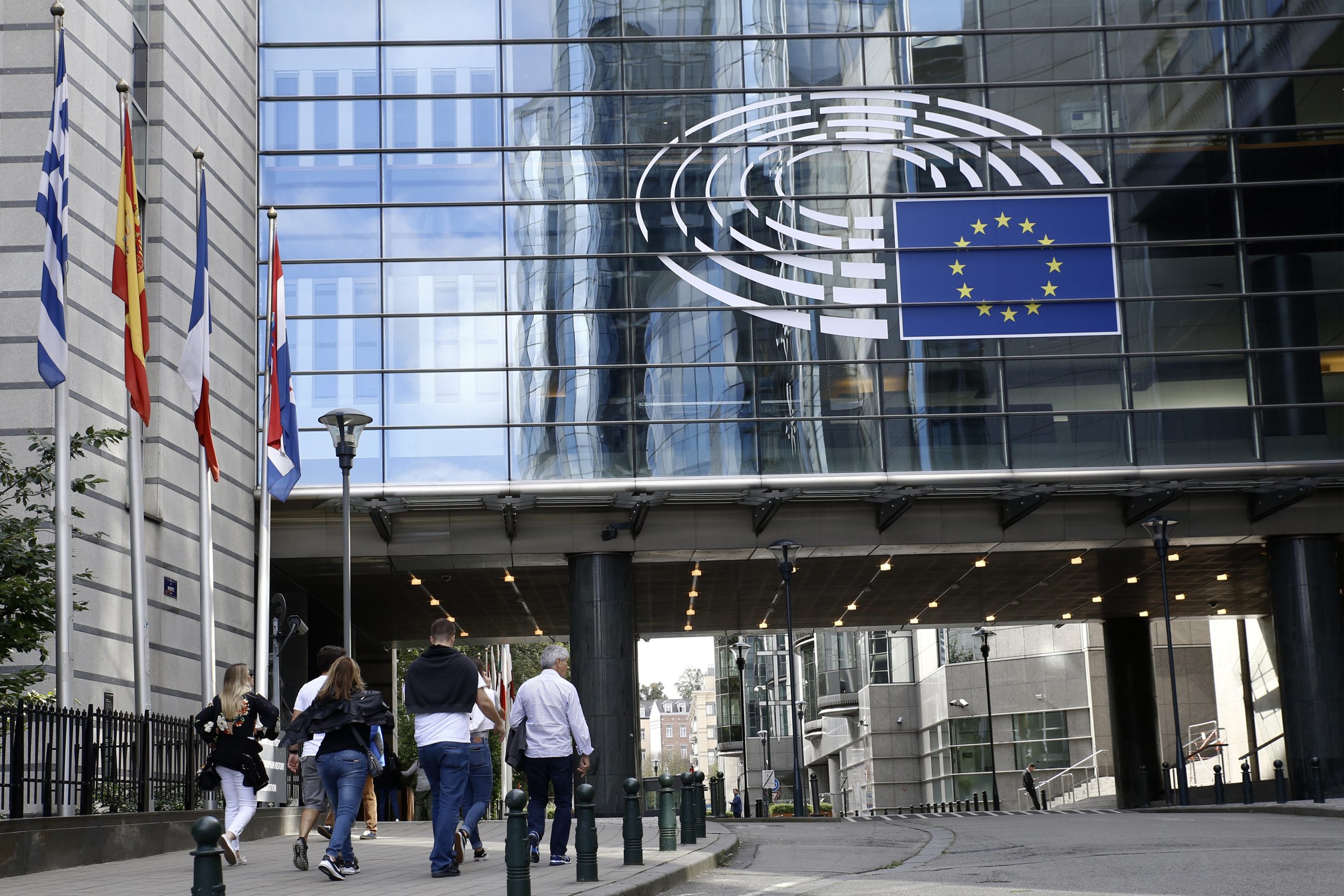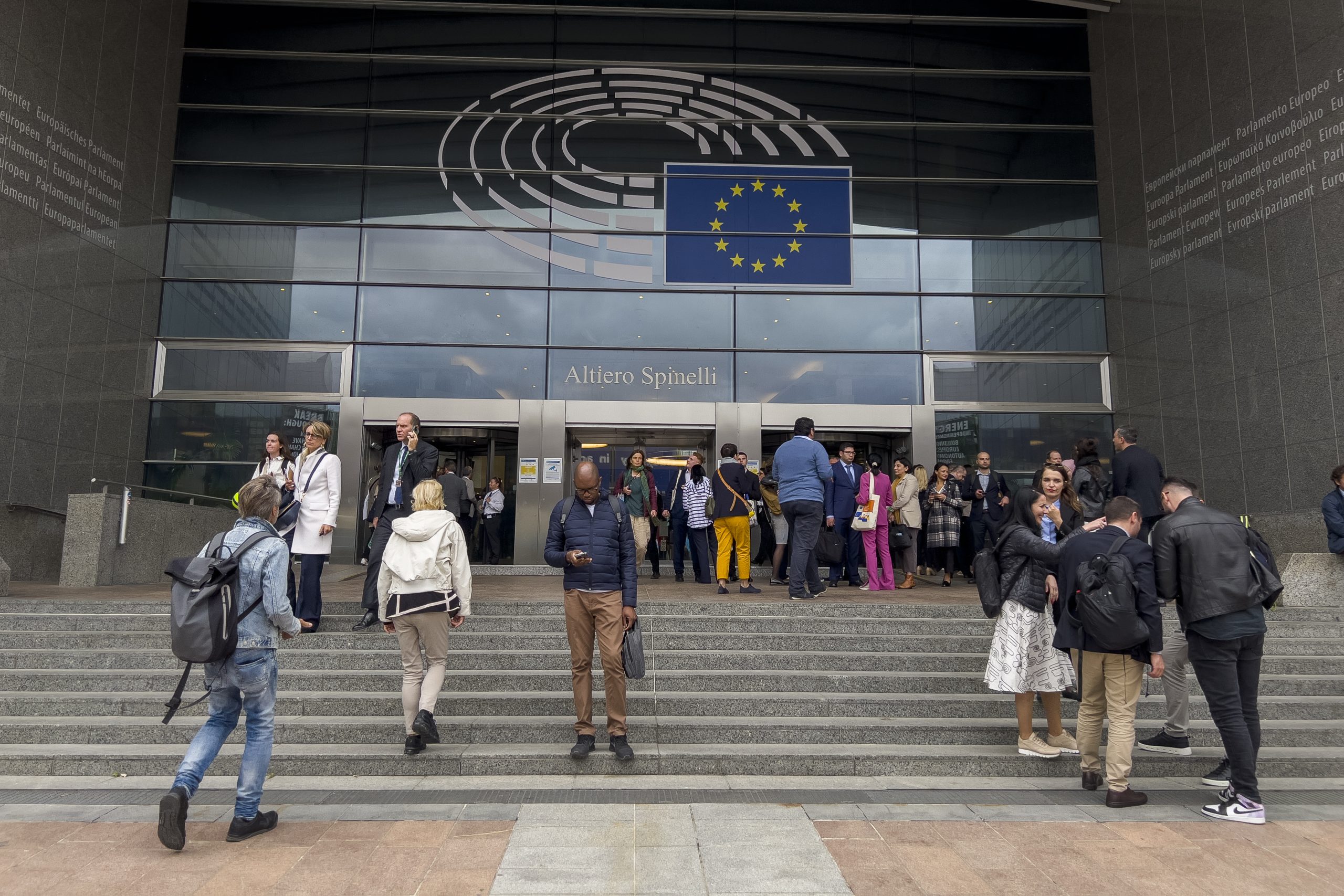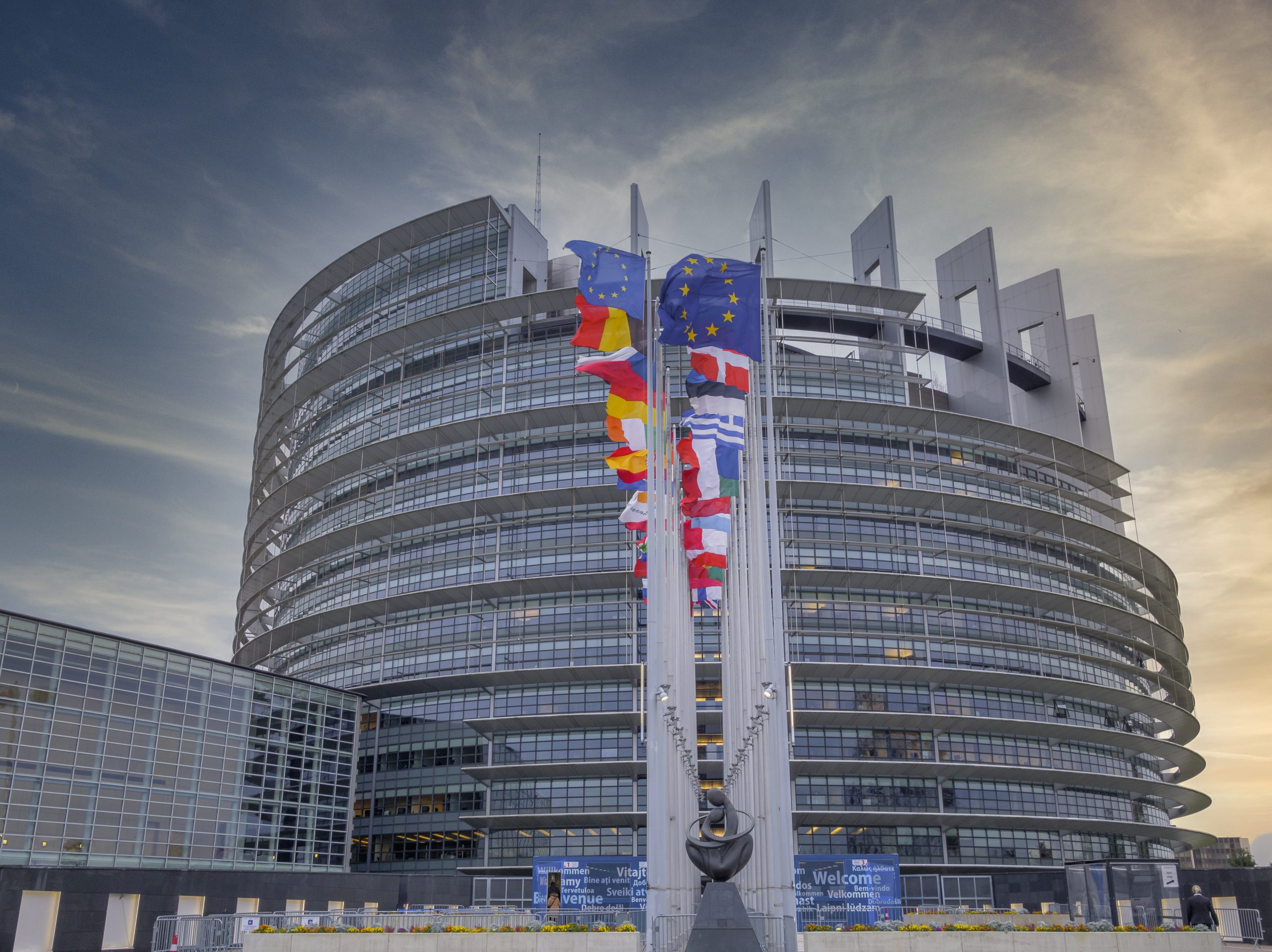Márton SULYOK: “Seeking Out New Galaxies”? – Essential State Functions and the ‘Regulation Revolution’ in the Context of Digitalization
On 16 September 2023, I was invited to participate at a workshop organized by colleagues at the University of Szeged, Miskolc, Barcelona and Roma Tor Vergata on Essential State Functions in the Age of Digitalization. The workshop was held as part of the 2023 Annual Reunion of the European Group of Public Law and the European Public Law Organization (EPLO) in Legraina and Sounion in Greece. It is fashionable to talk about the essential functions of the state in the cradle of democracy, only a few kilometers from Athens.
The following post will contain a summary of my legal arguments regarding these essential functions in the context of innovation digitalization and the platform economy. As Prof. Lorenzo Casini asked the audience on the EPLO Plenary session in his contribution: What is the relationship between technological revolution and the state? I will try and answer this question of his in the context of what I call ‘regulation revolution’ with respect to digitalization and then move on my framing of the importance of essential state functions.
What Revolution and Why?
I have recently written on the apparent surge of regulatory impulses on both the national and international levels, trying to respond to the many challenges presented by breaking more and more digital barriers than ever before. Looking at it from the US, many refers to these impulses as the Brussel effect, alluding to the European perception that the EU can remain a global player if it creates regulation in those fields that are technology-intensive, e.g. GDPR, DMA, DSA, e-evidence, AI Act. This, in turn, obviously affects the national levels as well, as they also feel that they have certain essential state functions that need to be shielded through regulation and some other areas where regulation needs to be created (platform regulation, e-administration, judicial use of IT and ADM, law enforcement and ADM – profiling, etc.).
To understand my framing of a ‘regulation revolution’, I would like to start with referring to the concept innovation. Innovation can be understood as “seeking out new galaxies and to boldly go where no man has gone before” – as the famous intro to the TV Series Star Trek echoes in our ears. In our day and age, the online space is one final frontier that we colonize more and more day by day and we break barriers at an unforeseen pace. In the famous approach taken by Austrian-born economist, Wolfgang Schumpeter, innovation can be interpreted as ‘creative destruction’. From this approach, looking at it from a legal and policy point of view, there are three key takeaways.Creative destruction leads to:
- deliberate dismantlement of established processes, which presents challenges to the regulatory mindset and established regulatory mechanisms, necessitating the reframing and rethinking of these settled practices
- technological disruption, which causes unprecedented rights issues in the context of invocation and digitalization in many sectors, and
- ‘unintended consequences’, namely e.g. loss of jobs, social inequality, etc.
A. In her suggestively titled article ‘Disruptive Platforms’, Margot Kaminski reviews the work of Orly Lobel [The Equality Machine – Harnessing Digital Technology for a Brighter, More Inclusive Future’ (Public Affairs, 2022)], and sheds light on the disruptiveness of technology in terms of Schumpeter’s creative destruction approach in the light that she argues that the platform economy becomes legally disruptive due to the fact that its flagship companies “tend not to fit neatly into existing legal categories in regulated areas.” Therefore, regulatory reflexes are challenged and instead of existing processes and definitions new ones need to be created in areas like data and privacy protection, competition law, consumer protection, etc.
Monroe E. Price, the namesake of one of the world’s most renowned media law moot court competitions translates this into the terms of social media by stating that the term ‘platform’ becomes a weighted term, “an opportunity for a wide variety of distinct approaches to regulation to be articulated, legislated and implemented”. Its appeal is creating a categorical distinction between production and distribution of content, which opens up the playing field for a variety of regulatory choices necessary “to allow zones of immunity from liability, said to be critical in the development of social media and the Internet.” (Read in full here, on p. 5)
In the above context, we need to be mindful of the co-existence or fusion of public and private power and authority as the role and extent of private power and regulation and their public (administrative and constitutional) law effects might significantly vary in different contexts. With the growing influence of these economic operators (developing AI technologies and platforms) the state should learn to protect those essential state functions (e.g. providing access to justice, remedies) that may exist in parallel with similar ones within the realm of private power. States cannot give these up – if we accept that they are – at least in some of these areas – primary regulators.
B. The deliberate dismantling of existing processes (also called disruption) brings about many rights issues that may need to be handled with new processes introduced through regulation. E.g. the field of intellectual property, art and culture has been completely upset by the appearance of AI, it is no longer just a human rights issue to be tackled by public lawyers, but may lead to conflict reflected in public law processes and consequences, like the use of deepfakes in government communications. (I will not delve into more of these aspects, but you can read interesting articles on these topics here, here and here on this blog.)
C. Finally, we need to address – mostly on the national, state level – the ‘unintended consequences’ of job loss and resulting social inequality through introducing equalizing legislation, labor market regulation, economic regulation. (Many aspects of social policy and legislation, employment policies are shielded by constitutional identity, and therefore these are pertinent to any inquiry regarding the scope and extent of essential state functions.)
Among the many skeptic view on digitalization and automation, a good example could be Bloomberg’s Andreas Kluth, who in 2021 pointed to a sociologically significant danger he then called “the crisis of masculinity”. In his view, increasing robotization (i.e. automation) in many ‘blue collar’ sectors will make it unnecessary to employ the ‘breadwinners’ (mainly men) of the past, which could lead to tensions and a crisis of their own masculinity. The most far-reaching legal consequences of this ‘identity crisis’ could be, for example, a turn to crime or even an increase in domestic violence. No matter if we accept this vision as an unintended social consequence of Schumpeter’s view on innovation, the state will need to address these or others through regulation, as the problems are relevant to the national labor market and the national society’s social welfare and well-being.
What Role and Functions for the State in light of the ‘Regulation Revolution’?
The first question in this realm is, obviously, if the role of the state changes or not. It does. Just as human functions change from production to oversight in many contexts, so will the functions of the state change in the opposite direction, from the observation and oversight of these processes to the production of rules on them. So we arrive and increased regulation. This is also partly due to the fact that the preexisting logics of the economy changed as well. While in the past regulating property and ownership were key factors to leading a successful business venture and to access the market, at present regulation is necessary to facilitate access to shared resources on regulated markets (e.g. AirBnb, Uber/Lyft).
In the context of the platform economy, Vagelis Papakonstantinou addressed the new role of states in his proposed ‘states as platforms’ approach on this blog. He asks the question where do states fit into the conversation about digital platforms? His answer is that states have traditionally been ‘platforms’, as in they served as ‘information intermediaries’ ever since organized society emerged. His arguments: States provide people’s names, nationalities, family and social security status, so many of these different types of information are co-created by states and citizens. Besides creation, states are also involved in information brokering through the safe storage and dissemination of information. I agree with him that this is one of the most important role of the state ‘as a platform’, to ensure the safety and security of citizens’ personal data. Papakonstantinou goes on to argue that information processing has been state-exclusive throughout history, by the state controlling the flow of information. Online platforms have diluted states’ control, taken over parts of it, states are no longer exclusive information brokers. Regardless, his conclusion is that in this sense the old role (and therefore functions) of the state are the new ones as well: states (as platforms) continue to exist as information intermediaries as well as security providers (for the information they mediate), also providing more pathways to citizens to increase their informational footprint in general and on the state itself. He mentions the function of providing security, that needs to remain – in his words – a state monopoly, i.e. understood as an essential state function.
To finish, I would like to argue why we need to ‘seek out new galaxies and boldly go where no man has gone before” to engage in academic exercise regarding the scope and extent of the scope and extent of essential state functions [as understood under Art 4(2) TEU] in age of digitalization, with special focus on the EU:
- First of all, the TEU is deliberately silent on the range of these functions (tied to inherent political and constitutional structures of Member States), the list provided in the text is not intended as a closed enumeration, national security and maintaining law and order are mentioned as specific examples. In the context of disruptive technologies that pose risks to both law and order and national security in the current ‘geopolitical chaos’ in and around the EU (e.g. energy crisis, wars, dangers to critical infrastructures, payload attacks, etc.), the regulation preventing these is still and shall primarily remain an essential state function (e.g. cybersecurity)
- Essential state functions (and resulting state regulation) should also be considered in areas where these functions should interact with EU regulatory competences (e.g. DSA, DMA, etc.). There is (a currently decreasing) regulatory competition between the Member States and EU levels, i.e. the role of the state changes. With regard to early drafts of the DSA and the DMA, there was initial MS resistance by reason of the drafts not respecting subsidiarity to a satisfactory level and these draft interpreted as the EU rolling over the Member States. In response, parallel regulatory concepts appeared in some Member States (definitions of ‘platforms’, creating legal tools for rights enforcement in state processes outside of the platform, etc.). However, over time the resistance on the part of the Member States against the EU ‘rolling over’ them has been rolled back and another function of the state regulator appeared: orchestration. Coordination between the different levels of the different regulators, a coordination between the multiplicity of authorities inside and outside of the state.
- Finally, as argued above, the state regulator may need to face with many unforeseen aspects of social and employment policy and legislation, which fall within the scope of constitutional identity under Article 4(2) TEU in the interpretation of the concept of many national constitutional courts. Therefore these are pertinent to any inquiry regarding the scope and extent of essential state functions as well, since they fall under the same TEU provision and are connected with each other. The problems mentioned in Andreas Kluth’s vision of the ‘crisis of masculinity’ may present as an unintended social consequence of Schumpeter’s view on innovation, and if so, the state will need to address these or others through regulation, as the problems are relevant to the national labor market and the national society’s social welfare and well-being.
The scope and extent of essential state functions is characterized by many as ‘chewed to the bone’ but – in the spirit of the Star Trek intro quoted in the introduction, I find that it is a new galaxy that is worth seeking out, especially because digitalization (in light of the ‘regulation revolution’ presented above) is the new space race and therefore the functions of the state in the age of digitalization represent the new “final frontier”.
Márton Sulyok JD, LLM, PhD is an Asst. Professor (Senior Lecturer) in Constitutional Law and Human Rights at the Institute of Public Law, University of Szeged in Hungary. JD (2007, Szeged), LLM in Anglo-Saxon Law and English Legal Translation (2012, Szeged), PhD in Law and Political Sciences (2017, Szeged). Certified as an American Legal Expert (since 2009) in a joint training program of the University of Toledo (OH, USA) College of Law and the University of Szeged Faculty of Law and Political Sciences. Currently, Prof. Sulyok is the Head of the Public Law Center at Mathias Corvinus Collegium (MCC) in Budapest, Hungary. Previously, he sat on the Management Board of the EU Fundamental Rights Agency (Vienna, 2015-2020), and is now a member of the European Group of Public Law, the Scientific Committee of the EPLO (European Public Law Organization), where he also sits on the Board of Directors.








